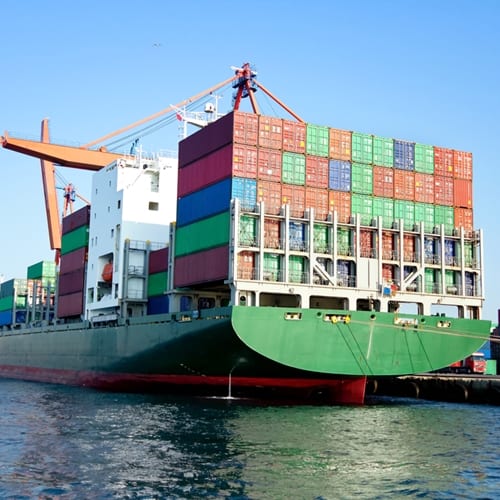In an effort to expedite the recovery process in Puerto Rico after Hurricane Maria knocked power out to virtually the entire island, the Jones Act is being lifted temporarily.
On Sept. 28, the White House announced a temporary moratorium on the Jones Act, a nearly 100-year-old rule that marine contractors abide by, confining only U.S.-flagged ships to carrying equipment between ports. The 10-day suspension will allow foreign-flagged ships to more actively participate in the recovery effort, much of which has been spearheaded by the U.S.
"The Jones Act was temporarily suspended on Sept. 28."
Sarah Sanders, White House press secretary, sent out a Tweet announcing the waiver came at the request of Puerto Rico Gov. Ricardo Rosello.
"It (the waiver) will go into effect immediately," Sanders said in a statement, issues via Twitter, CNN reported.
Rosello wasn't the only one who urged for the temporary lifting of the Jones Act. So too did several members of Congress, saying it would help hasten the recovery effort, given that much of Puerto Rico remains without power. Individuals familiar with the matter believe the island's electrical grid may not be fully restored for an additional six months, according to Reuters.
Carmen Yulin Cruz, mayor of San Juan, welcomed the news of the Jones Act 10-day moratorium, telling CNN the lifting was sorely needed.
"It is an act of justice," Cruz stressed. "It will allow Puerto Ricans to rebuild and to have a cost of living that really frankly is affordable."
Mariners actively taking part in recovery
The maritime industry, along with many relief organizations, like the American Red Cross and Federal Emergency Management Agency, have been hard at work, trying to bring normalcy to Puerto Rico by distributing supplies, food and water. The American Maritime Partnership says it's transported roughly 9,500 containers of goods with one ship hauling 35 million pounds of cargo.
In light of the Jones Act suspension, the American Maritime Partnership is looking to correct the record on some misstatements made by lawmakers. For instance, it noted that contrary to popular belief, foreign vessels regularly provide maritime services to Puerto Rico, with the Government Accountability Office finding that as many as 55 carriers have imported cargo to the U.S. territory in a single month before.
Insufficient infrastructure main problem
In a statement, the American Maritime Partnership said the Jones Act hasn't been the problem in slowing the recovery process in Puerto Rico, but rather insufficient infrastructure.
"What we are seeing clearly on the ground is thousands of cargo containers piling up at the port of San Juan, filled with essential goods that the Puerto Rican people desperately need, but not nearly enough trucks and clear roads to distribute the goods," said Thomas Allegretti, chairman of the American Maritime Partnership. "So, the problem at the port is a lack of trucks and delivery routes, not a lack of vessels."
The Jones Act is slated to go back into effect on Oct. 8.
In addition to providing insurance services for a wide range of maritime industries, we at Fisk Marine Insurance International like to consider ourselves well informed on the rules and regulations marine contractors are bound by. Check out our coverage section at the top of our homepage for more background information on the Jones Act and how it relates to employers liability.


